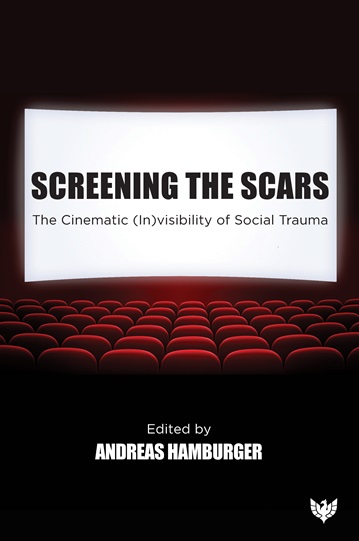Screening the Scars: The Cinematic (In)visibility of Social Trauma

Book Details
- Publisher : Karnac Books
- Published : 2024
- Cover : Paperback
- Pages : 298
- Category :
Psychoanalysis - Catalogue No : 97822
- ISBN 13 : 9781800132900
- ISBN 10 : 1800132905
Reviews and Endorsements
It is a fascinating reading experience to discover how this book combines an understanding of social trauma – using cinematic art as a representation – and social processing of traumatic historical events – in particular using many examples from countries with differing cultures – alongside a specific psychoanalytical approach to film interpretation. The editor compares social trauma with an initially invisible “elephant in the room”, which only becomes visible through the spectator's inner encounter with the film. This comparison is actualised in an oppressive but at the same time illuminating way in a ten-year, multinational, and interdisciplinary working group on traumatic experiences of war and dictatorship in various countries. In addition to the excellent interpretations of exemplary films, the openness with which the intrusion of trauma into the collegial group and the way it is dealt with deserves the highest recognition.
Heribert Blass, Dr med (DPV), IPA president elect
If you want to put together in one book the cinematic (in)visibility of social trauma, focusing mostly on Balkan region cinema; if you are interested in the specific influence of historic past and contemporary social and political events on the individual mindset of the people of this region, recalling the famous aphorism that “The Balkans produce more history than they can withstand...”, then this book is your best choice covering the current bibliography on the subject. Prof Dr Andreas Hamburger’s collection is a representative sample of texts by highly qualified professionals and their up-to-date analyses and positioning of the most relevant films.
Professor Dr Bojidar Manov, Bulgaria, film scholar, NATFIS, FIPRESCI
Screening the Scars takes the reader on a journey through lands devastated by conflict and corruption. Psychoanalyst Andreas Hamburger leads an interdisciplinary team of scholars who explore the multiple renderings of social trauma found in contemporary cinema. The essays do not shy away from the bleak landscapes and the apocalyptic spaces of post-violence where damage and destruction reign supreme. Individual case studies are paired up with filmmakers’ interviews that give fascinating insights into the intentions behind important cinematic texts. The constellation of transnational material and parallels across cultures and above borders widens and deepens our understanding of social trauma and the therapeutic function of cinema.’
Dina Iordanova, emeritus professor of global cinema, University of St Andrews, Scotland
Screening the Scars: The Cinematic (In)visibility of Social Trauma is an impressive addition to the psychoanalytic dialogue on social trauma between psychoanalysis and film which is particularly valuable for the illuminating interviews with filmmakers. Hamburger et al. emphasise the importance of acknowledgement and remembering against the universal pull towards forgetting. Highly recommended and sadly all too relevant today.’
Dr Anne Patterson, psychoanalyst, co-director of European Psychoanalytic Film Festival
Screening the Scars is a valuable dialogue between psychoanalysts and cineasts, not only about the aftermath of war crimes or the wide practice of atrocities, but also about having a voice and surviving. Cinema becomes a self-reflecting social act, mostly by depicting the everyday as a witness, one that triggers discomfort and incites meaning where empty silence once resided. It interprets by making us feel the deep footprints of everyday excess left in us or the unspeakable, so-called non-representable effects of trauma, so we reach a recognition of the unseen scars of yesterday. Forgotten, these will likely become the fresh wounds of tomorrow.
Anatol Reghintovschi, psychoanalyst, film director

